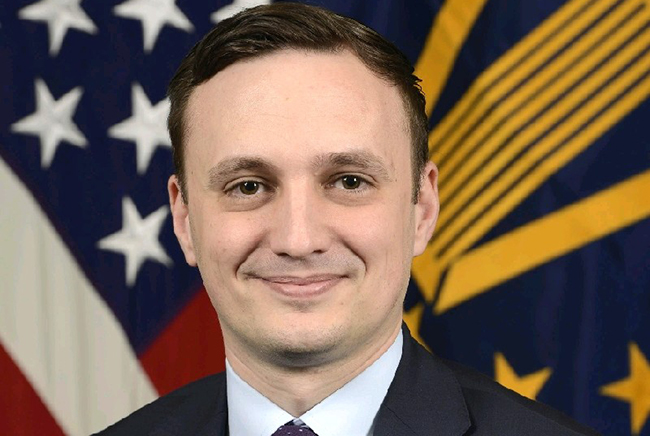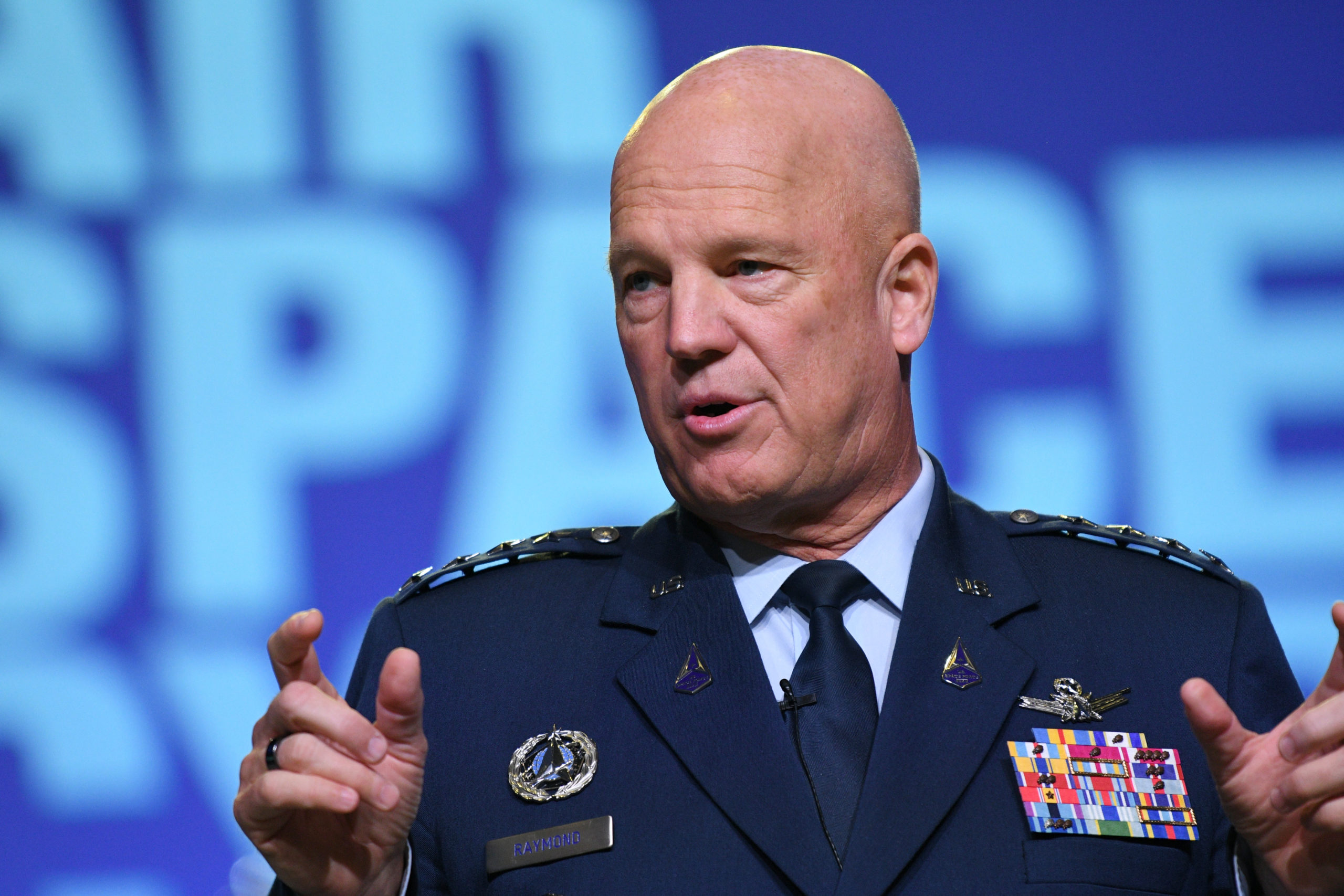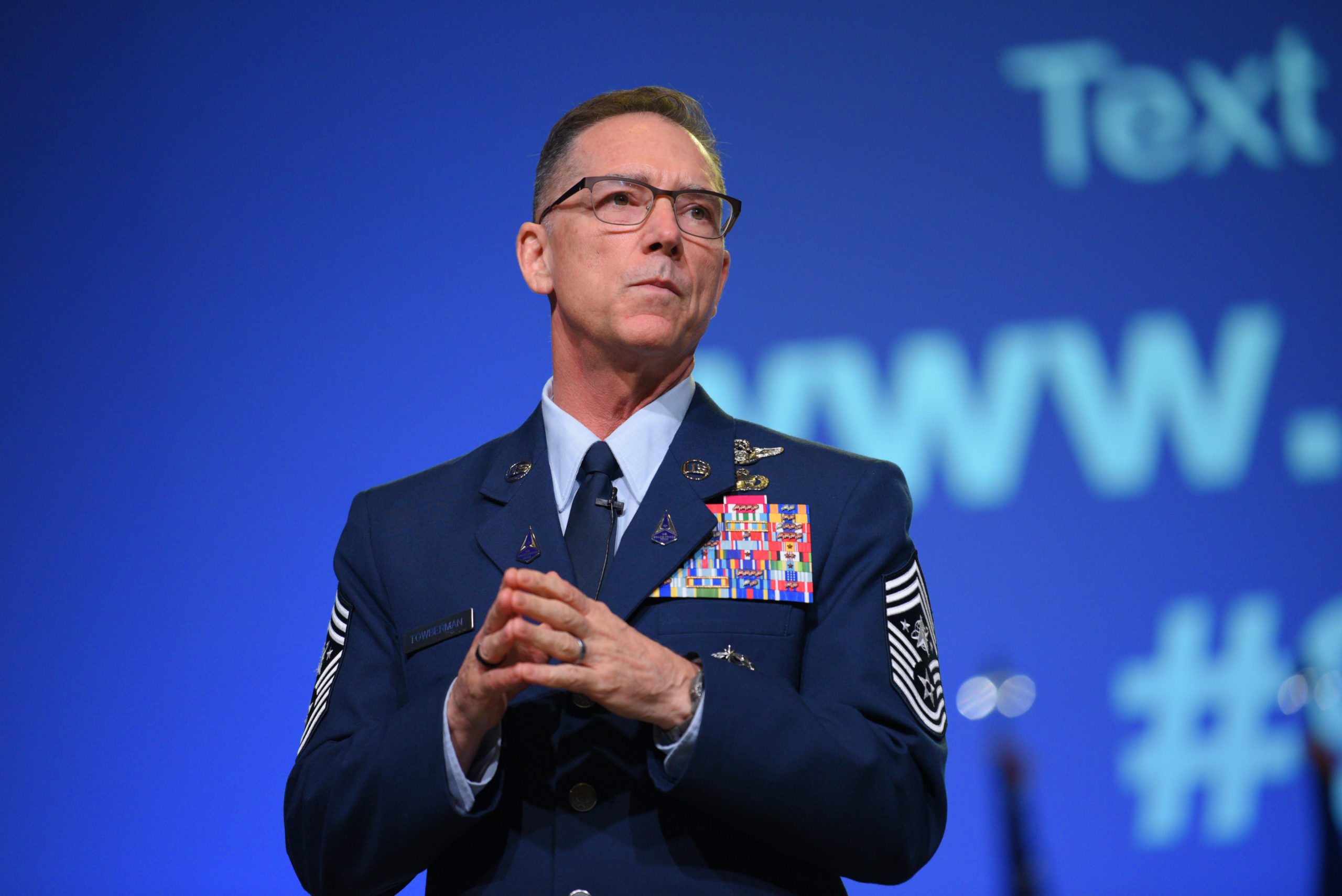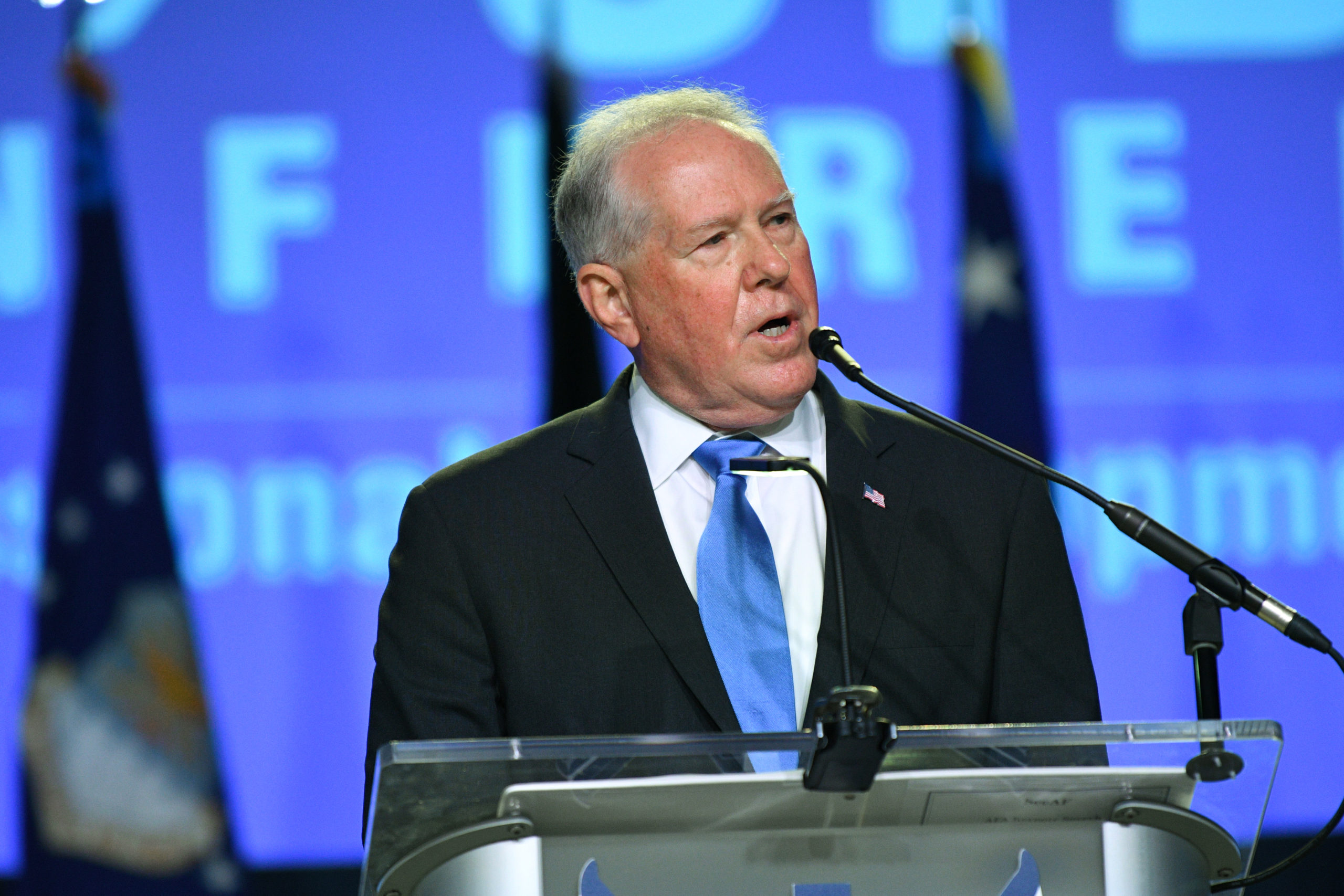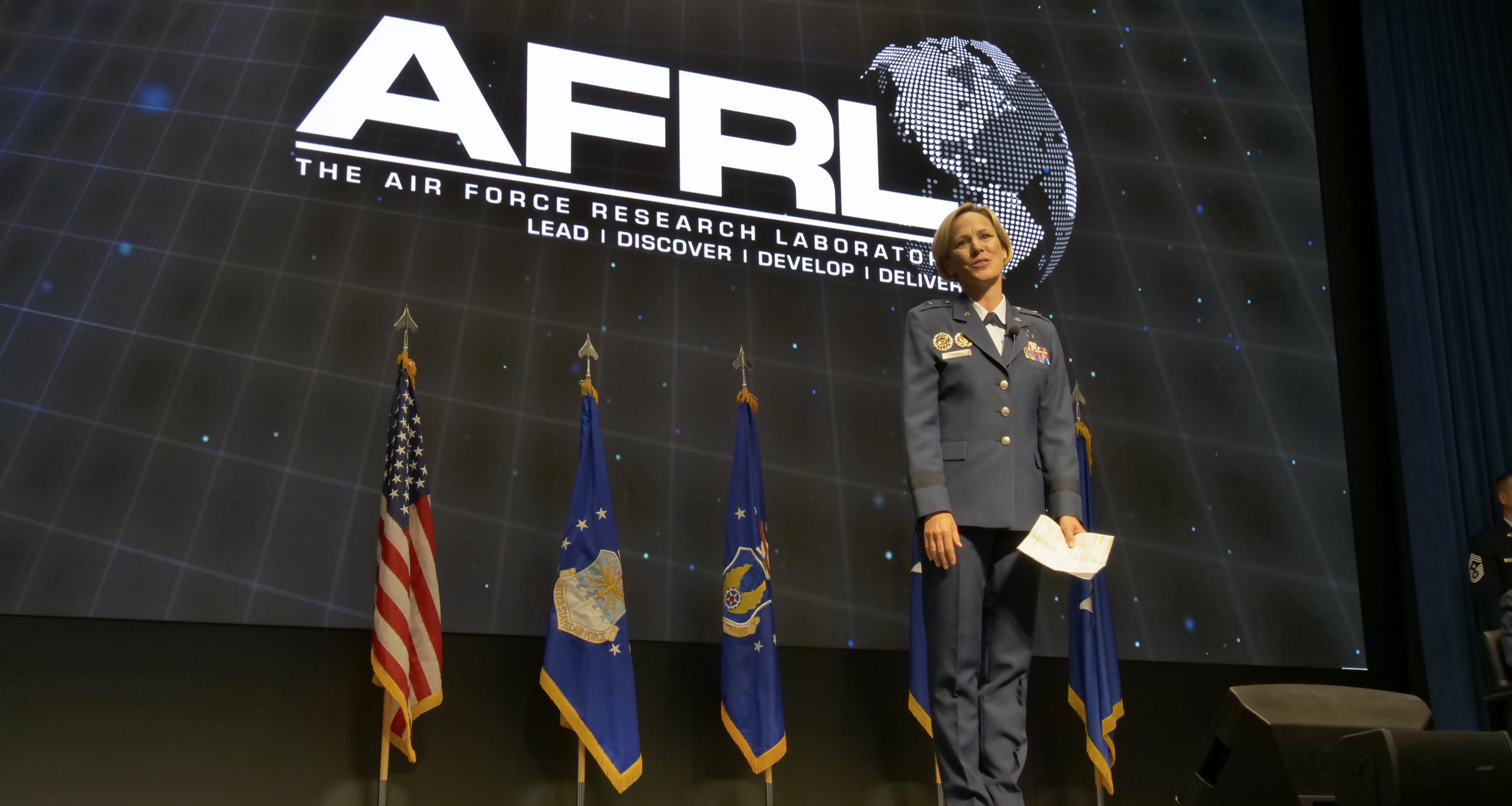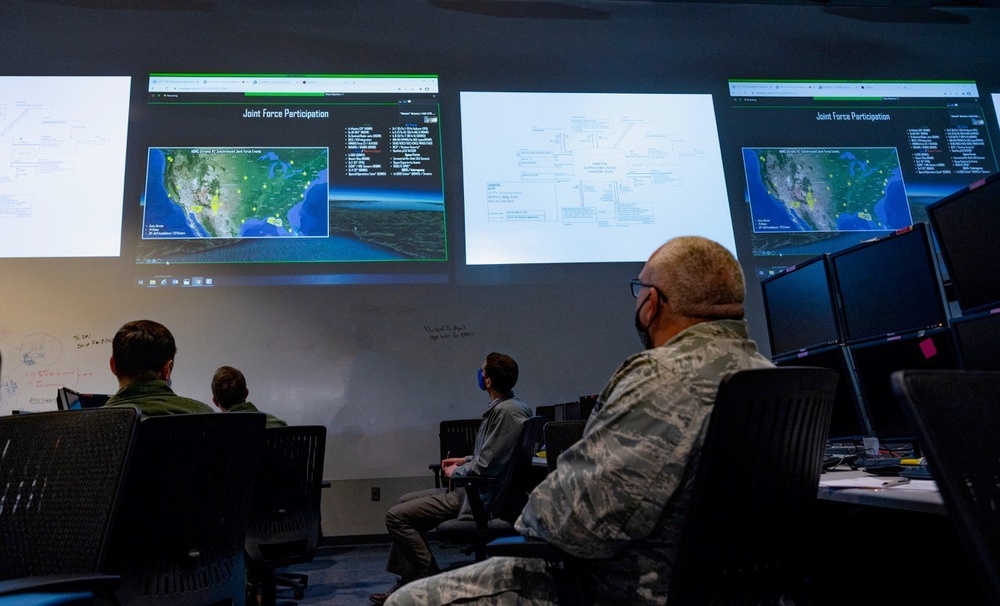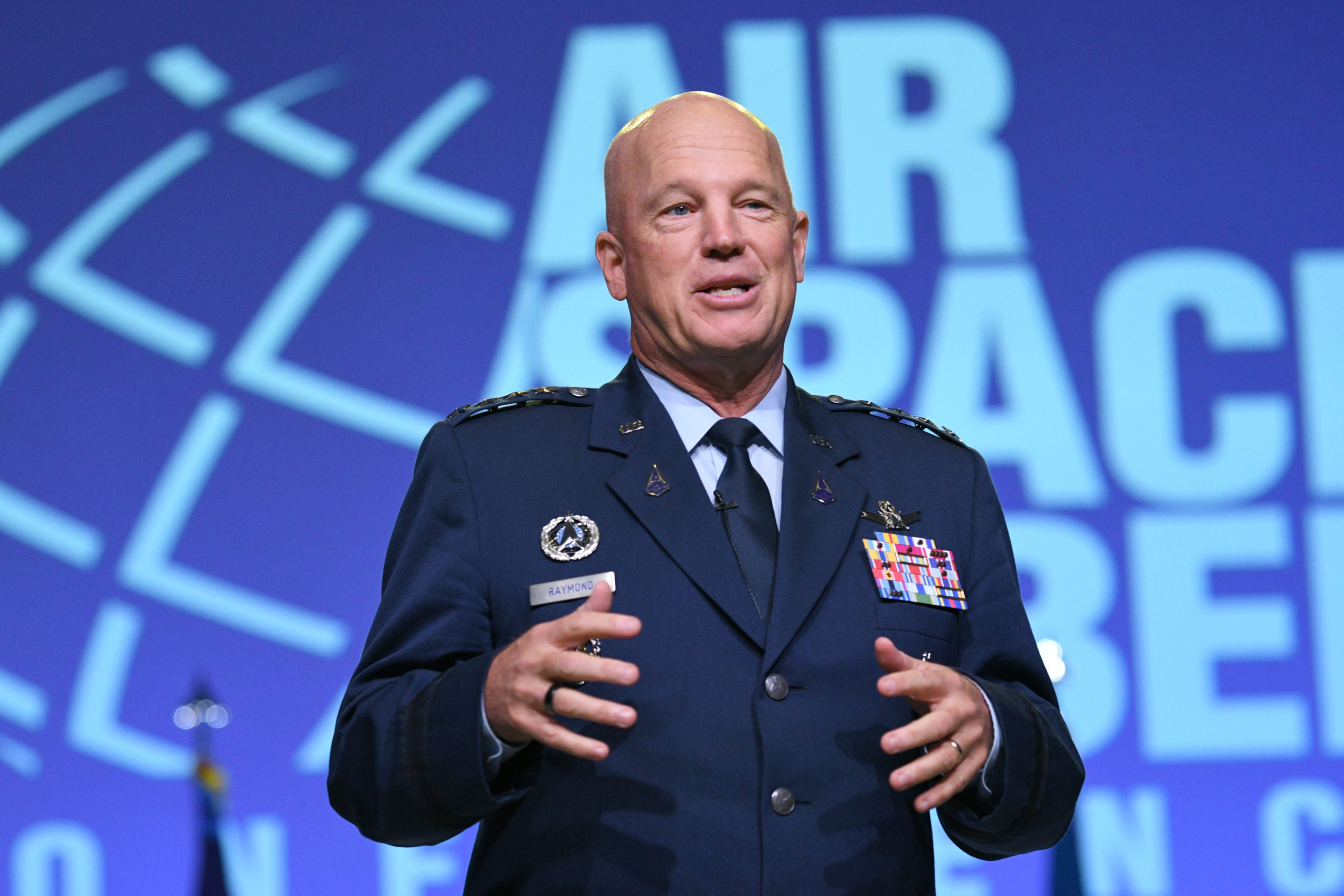The Air Force is considering whether senior military officers without technical experience or skills should continue to be put in charge of advanced technology acquisition programs following a blistering resignation letter from the service’s chief software officer earlier this month.
Nicolas M. Chaillan, who had held the position since May 2019, “has really helped us move forward and [highlighted] things that we need to change in the Department of the Air Force, relative to improving our software skills,” Acting Assistant Secretary of the Air Force for Acquisition, Technology, and Logistics Darlene Costello told a media roundtable at AFA’s Air, Space, & Cyber Conference on Sept. 21. “So all of his recommendations that he made we take seriously, and we look into and see what we can do about them.”
Her remarks added specificity to previous comments Sept. 20 by Air Force Secretary Frank Kendall, who told reporters he had spoken to Chaillan about the latter’s concerns. “I think a lot of the things that he’s raising, he had brought up before in the context of doing his job as software chief officer,” Kendall said, adding, “He has some concerns that I think are being addressed. And I’m going to continue to look into that.”
“They’re saying the right things,” Chaillan told Air Force Magazine after being told of Costello’s comments. “Time will tell if the actions match up.”
Chaillan quit dramatically Sept. 2, announcing his decision in a “drop the mic” LinkedIn post expressing frustration with military bureaucrats who had, he said, refused to “walk the walk” on IT modernization and more agile acquisition. In the post, he called on the Air Force, and indeed the entire Department of Defense, to “stop putting a Major or Lt. Colonel (despite their devotion, exceptional attitude, and culture) in charge of [identity credentialing and access management], zero trust or cloud [computing] for 1 to 4 million users when they have no previous experience in that field.”
“No commercial company would put someone without a technical background in charge of their cloud [migration project] or their email,” he told Air Force Magazine. Even though the job of CIO or CTO was a management role, “They have to be able to understand the technical basics at least” so that they can ask the right questions and have a chance of knowing if they are being snowed or misled.
Even skilled practitioners “struggle” with IT projects at the DOD because of the huge size and complexity of the organization, Chaillan said. Leaders could delegate technical questions, he added, but that can just mean “contractors get to make the key decisions. … And they don’t always put the best interests of the taxpayer or the warfighter first.”
Costello, the Air Force’s senior-most civilian acquisition official, said the service was looking into how to make the best of its limited talent pool when it came to the management of very technical programs. “We are looking into what can be done and what can’t be done. We don’t have necessarily all the right talents in the right place, but we also don’t have an infinite amount of talent, either, so looking at what is the right balance of that is absolutely one of the things that we’re working with our personnel team [on], and we’ll continue to work with our program teams to see what we can do to optimize for the people who are put [in charge] of programs like that.”
But not everyone seemed onboard with Chaillan’s criticisms. “I think it’s a matter of degree,” said Lt. Gen. Duke Z. Richardson, the Air Force’s senior-most military acquisition officer. “I don’t know that I personally agree that we don’t put the right people in charge that have the technical background,” he said. “The folks that are working on a lot of these projects are pretty darn astute … We will always put people in those positions that are qualified, and I’ll just leave it at that. I think we do a pretty good job at that,” he said.
Richardson said the concerns Chaillan raised were well understood. “I’m not sure there was anything new in his set of recommendations that we didn’t know about and that we’re not [already] working,” he explained, adding, “Things don’t always move as fast in the government as we’d like them to. There’s lots of reasons for that.”
